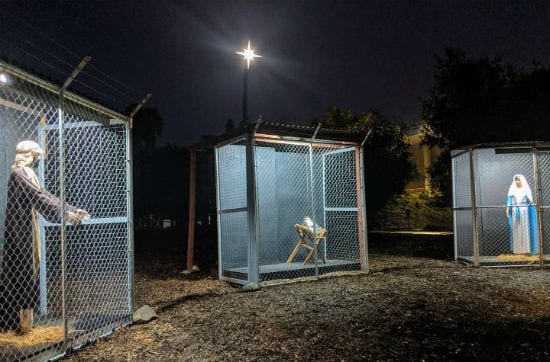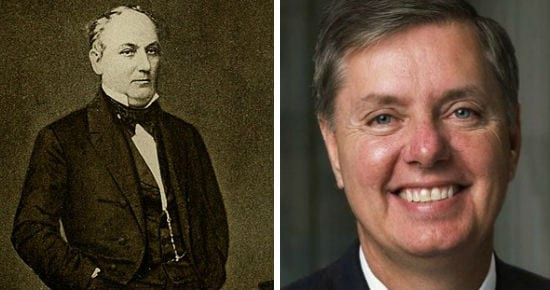Josh Marshall's long-awaited "empire" review essay is in this week's New Yorker. You can read it online here.
Marshall uses terms like "imperial" descriptively, not pejoratively and not as a dismissive epithet. It is simply the case that the United States now possesses unrivaled military might and, in various ways, functions rather like an imperial power. Marshall's essay examines the responsibilities and opportunities that arise from this situation.
For those keeping score at home, he portrays Chalmers Johnson's The Sorrows of Empire: Militarism, Secrecy and the End of the Republic as a sobering, insightful and reliable account of America's post-Cold War imperial position. Marshall also casts an approving eye on Ivo Daalder and James Lindsay's America Unbound: The Bush Revolution in Foreign Policy.
An End to Evil: How to Win the War on Terror, by David Frum and Richard Perle, however, draws some rather pointed criticism. Frum and Perle's prescription, Marshall writes:
… amounts to war, cold or hot, against pretty much everyone, everywhere, all the time — until everyone relents. And, if that doesn’t do the trick, more war. …
Theirs are not policies that would lead to the end of evil; they might well, in the long run, lead to the end of empire.
It's a blogger's cliche, I know, but go read the whole thing. Here are two more select snippets:
… American power is magnified when it is embedded in international institutions, as leftists have lamented. It is also somewhat constrained, as conservatives have lamented. This is precisely the covenant on which American supremacy has been based. The trouble is that hard-line critics of multilateralism focused on how that power was constrained and missed how it was magnified.
Conservative ideologues, in calling for an international order in which America would have a statelike monopoly on coercive force, somehow forgot what makes for a successful state. Stable governments rule not by direct coercion but by establishing a shared sense of allegiance. In an old formula, "domination" gives way to "hegemony" — brute force gives way to the deeper power of consent. This is why the classic definition of the state speaks of legitimate force. In a constitutional order, government accepts certain checks on its authority, but the result is to deepen that authority, rather than to diminish it. Legitimacy is the ultimate "force multiplier," in military argot. And if your aim is to maintain a global order, as opposed to rousting this or that pariah regime, you need all the force multipliers you can get.
The empire-makers of 2002 weakened America's covert empire because, at a critical level, they didn't understand how it worked. …
As Fareed Zakaria observed last year, after speaking to government officials in dozens of countries around the world, almost every country that has had dealings with the Bush Administration has felt humiliated by it. America isn't powerful because people like us: our power is a product of dollars and guns. But when people think that America's unique role in the world is basically legitimate, that power becomes less costly to exert and to sustain. People around the world have respected and admired American power because of the way America has acted. If it acts differently, the perceptions of American benevolence can start to ebb — and, to judge from any public-opinion poll from abroad over the last year, that's essentially what has happened. When it comes to political capital, too, this is an Administration with a weakness for deficit spending.
Also worth reading in full is a related essay by Ken Roth, executive director of <a Human Rights Watch. The "keynote essay" of HRW's 2004 World Report is titled "War in Iraq: Not a Humanitarian Intervention."
Here's how HRW's press release summarizes the essay:
Roth notes that removing Saddam Hussein from power brought about the end of one of the world’s most abusive governments. But intervening militarily on the territory of a sovereign state, without its permission, is inherently dangerous and must be undertaken for humanitarian purposes in only the most extreme cases. While Saddam Hussein had an atrocious human rights record, his worst atrocities were committed long before the intervention. At the time coalition forces invaded Iraq, there was no ongoing or imminent mass killing of the sort that would require the kind of preventive military action that should characterize true humanitarian interventions.
For a military action to be characterized as "humanitarian," Roth argues that the motive for intervening should be primarily humanitarian; the danger of slaughter should be imminent and the scale of the killings massive; and all other options for preventing the slaughter should have been exhausted.
"The Bush administration cannot justify the war in Iraq as a humanitarian intervention, and neither can Tony Blair," said Roth. "Saddam Hussein's atrocities should certainly be punished, and his worst atrocities, such as the 1988 genocide against the Kurds, would have justified humanitarian intervention then. But such interventions should be reserved for stopping an imminent or ongoing slaughter. They shouldn't be used belatedly to address atrocities that were ignored in the past."
And here's a snippet from the essay itself:
Because the Iraq war was not mainly about saving the Iraqi people from mass slaughter, and because no such slaughter was then ongoing or imminent, Human Rights Watch at the time took no position for or against the war. A humanitarian rationale was occasionally offered for the war, but it was so plainly subsidiary to other reasons that we felt no need to address it. Indeed, if Saddam Hussein had been overthrown and the issue of weapons of mass destruction reliably dealt with, there clearly would have been no war, even if the successor government were just as repressive. …
Over time, the principal justifications originally given for the Iraq war lost much of their force. More than seven months after the declared end of major hostilities, weapons of mass destruction have not been found. No significant prewar link between Saddam Hussein and international terrorism has been discovered. The difficulty of establishing stable institutions in Iraq is making the country an increasingly unlikely staging ground for promoting democracy in the Middle East. As time elapses, the Bush administration’s dominant remaining justification for the war is that Saddam Hussein was a tyrant who deserved to be overthrown — an argument of humanitarian intervention. The administration is now citing this rationale not simply as a side benefit of the war but also as a prime justification for it. Other reasons are still regularly mentioned, but the humanitarian one has gained prominence.
Does that claim hold up to scrutiny? The question is not simply whether Saddam Hussein was a ruthless leader; he most certainly was. Rather, the question is whether the conditions were present that would justify humanitarian intervention — conditions that look at more than the level of repression. If so, honesty would require conceding as much, despite the war's global unpopularity. If not, it is important to say so as well, since allowing the arguments of humanitarian intervention to serve as a pretext for war fought mainly on other grounds risks tainting a principle whose viability might be essential to save countless lives.
Roth goes on to discuss the sorts of conditions, or criteria, that ought to be satisfied in order for military humanitarian intervention to be justified. As Jeanne d'Arc of Body and Soul has noted, the criteria Roth presents parallel those of the just war tradition. (Okay, yes, I'll say it again: Jeanne's post and the comments thread it provoked explore many angles of this topic that I haven't touched on here — go read the whole thing.)












